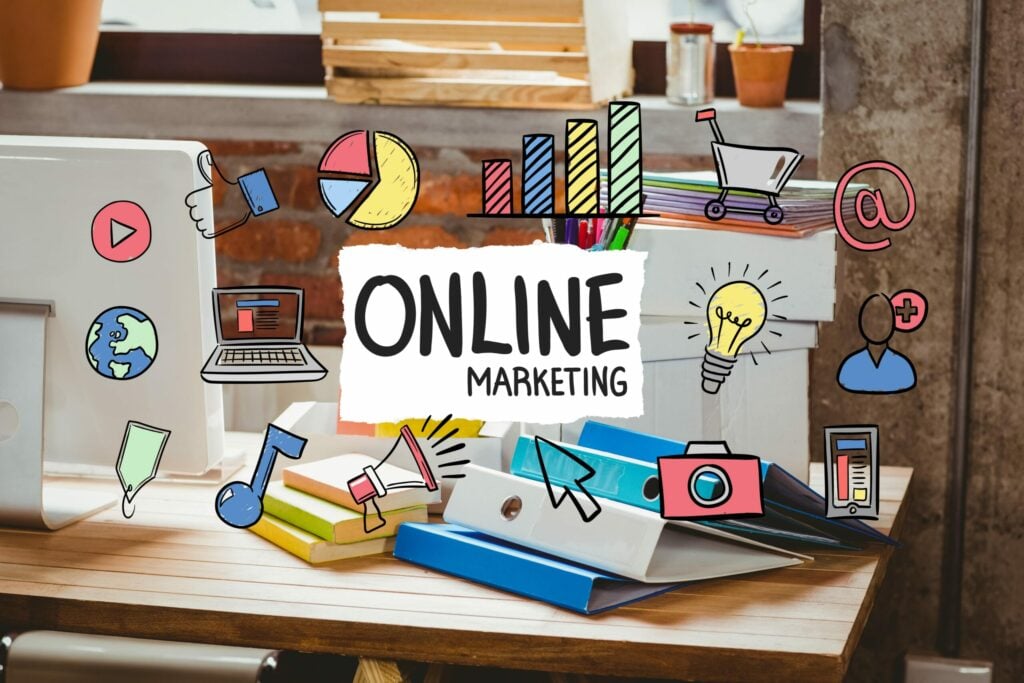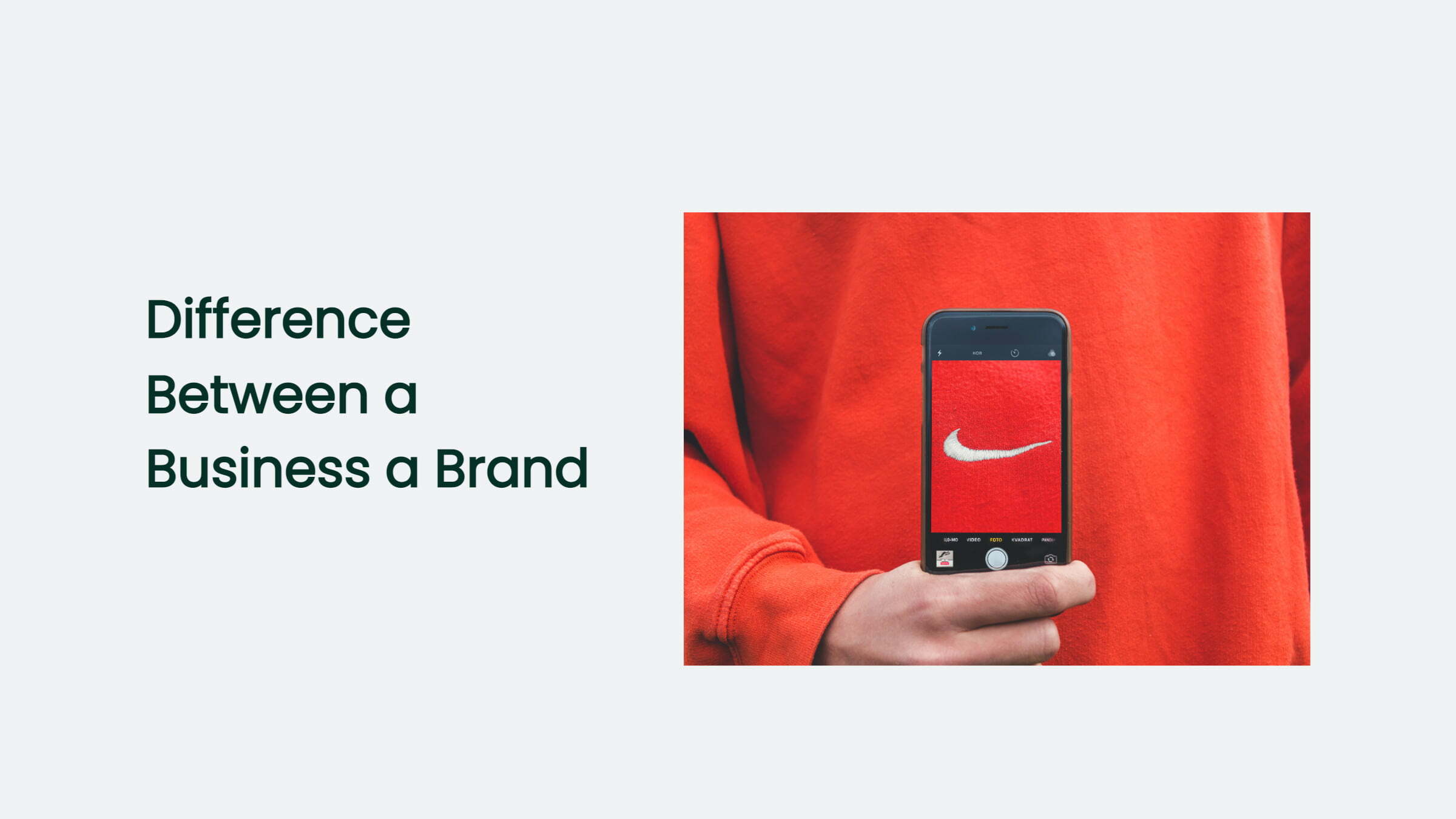

Difference Between a Business and a Brand: Things You Should Know About

As Seen On
Whether you’re a sole proprietor just getting started or an established business owner, it’s essential to understand the difference between a business and a brand.
Though the terms are often used interchangeably, they are two very different things.
Your business is the physical manifestation of your products or services.
It’s the total of your operations, including your employees, processes, and physical location (if you have one).
On the other hand, your brand is the emotional connection that your customers feel with your business. It sets you apart from your competitors and dictates how customers perceive you.
Put simply, your business is what you do, and your brand is how you do it.
Keep reading to learn more about the key differences between businesses and brands.

The Function of a Business
A business is an entity that provides goods or services in exchange for money.
A business can be for-profit or non-profit, and it can be run by an individual, a partnership, or a corporation.
The function of a business is to produce and sell products or services that meet a demand in the marketplace.
There are four key components to every successful business:
A clearly defined target market:
To be successful, you must first identify the people who are most likely to buy your product or use your service.
This target market should be as specific as possible; the more you know about it, the better you’ll be able to cater to their needs.
For example, if you’re selling SUV tires, your target market might be parents who live in suburban areas and frequently drive off-road.
A unique selling proposition:
What makes your product or service different from everything else that’s available?
It could be anything from a competitive price to innovative features and better customer service.
A solid marketing strategy:
Once you’ve identified your target market and unique selling proposition, you need to develop a marketing strategy to reach them where they are.
It could involve everything from print ads and billboards to targeted online and social media campaigns.
Sustainable profits:
Last but not least, any successful business must generate sustainable profits over time.
For this to happen, your revenue must consistently exceed your expenses. If it doesn’t, you’ll quickly find yourself out of business.
The Role of Branding in Businesses:
Branding is about creating an emotional connection between your customers and your business.
A strong brand will differentiate you from your competitors and help build customer loyalty—two things that are essential for long-term success.
Some of the essential elements of branding include:
Your logo:
It is one of the first things customers will notice about your company, so it’s essential to reflect your brand’s values.
Your logo should be memorable, timeless, and appropriate for digital and print applications.
Your colour palette:
The colours you use in your branding should be carefully selected to reflect the emotions you want customers to feel when they think of your company.
For example, blue conveys trustworthiness and stability, while green signifies growth and new beginnings.
Your typography:
Like colours, fonts can also influence customers’ emotions when they see them.
For example, serif fonts (fonts with small lines at the end of each stroke) are generally seen as traditional. In contrast, sans-serif fonts (without these lines) are typically associated with modernity and simplicity.
Frequently Asked Questions:
What’s the difference between a business and a brand?
A business is an entity that provides goods or services in exchange for money, while a brand is an emotional connection that customers feel with your company.u003cbru003eu003cbru003eBranding is about creating this emotional connection and differentiating yourself from your competitors.
Why is branding important for businesses?
Branding is essential for businesses because it helps build customer loyalty and differentiation.
What are some of the most important elements of branding?
The most important branding elements include your logo, colour palette, typography, and overall visual identity.
How can I create a strong brand for my business?
There’s no one-size-fits-all answer to this question. Still, some important things to remember include a clear understanding of your target market and what they’re looking for, a unique selling proposition that sets you apart from your competitors, and a solid visual identity.
What are some common branding mistakes businesses make?
Some common branding mistakes businesses include using too many colours, using fonts that are difficult to read, and failing to integrate their branding across all touchpoints (e.g., their website, social media, physical storefront, etc.).
The Bottom Line:
A well-defined brand is one of the most important assets any business can have—but it’s not something that can be created overnight.
It takes time, effort, and lots of trial and error to develop a strong brand identity that resonates with customers … but it’s worth it!
Investing in branding will help ensure that your business enjoys long-term success in today’s ultra-competitive marketplace.”
Konger
Up until working with Casey, we had only had poor to mediocre experiences outsourcing work to agencies. Casey & the team at CJ&CO are the exception to the rule.
Communication was beyond great, his understanding of our vision was phenomenal, and instead of needing babysitting like the other agencies we worked with, he was not only completely dependable but also gave us sound suggestions on how to get better results, at the risk of us not needing him for the initial job we requested (absolute gem).
This has truly been the first time we worked with someone outside of our business that quickly grasped our vision, and that I could completely forget about and would still deliver above expectations.
I honestly can't wait to work in many more projects together!
Disclaimer
*The information this blog provides is for general informational purposes only and is not intended as financial or professional advice. The information may not reflect current developments and may be changed or updated without notice. Any opinions expressed on this blog are the author’s own and do not necessarily reflect the views of the author’s employer or any other organization. You should not act or rely on any information contained in this blog without first seeking the advice of a professional. No representation or warranty, express or implied, is made as to the accuracy or completeness of the information contained in this blog. The author and affiliated parties assume no liability for any errors or omissions.

